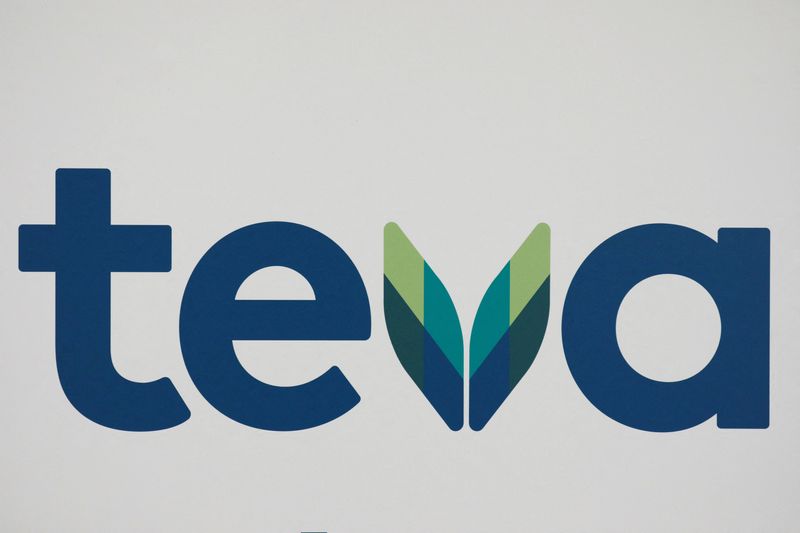By Steven Scheer
JERUSALEM (Reuters) -Teva Pharmaceutical Industries on Wednesday forecast mid-single digit revenue growth over the next five years as it strives to move on from its high debt and an overhang from thousands of lawsuits over its alleged role in the U.S. opioid crisis.
Israel-based Teva, the world's largest generic drugmaker, for the past five years has been hit hard by a weak U.S. generics market and stiff competition to its blockbuster multiple sclerosis drug Copaxone.
After years of negotiations, Teva on Tuesday proposed a $4.35 billion nationwide settlement - mostly cash and partly medicines - to resolve its opioid lawsuits..
Teva in May said it expected a $2.6 billion settlement but chief executive Kare Schultz said the figure rose during negotiations with plaintiffs.
The agreement in principle should take a few weeks to finalize and then it needs a host of approvals before it takes effect, Schultz said on Wednesday.
He said that under terms of the agreement, it will cost the company between $300 million and $400 million annually over 13 years - a sum shareholders deem as a relief as its shares were up more than 21%.
The state of New York has not agreed to participate in the settlement, and continues to seek a judgment against Teva after a New York jury found the company responsible for the state's opioid crisis in December.
Schultz told Reuters he expects Teva to reach a settlement with New York in the coming weeks, and that the value of the New York settlement would be included in the overall settlement of state and local government claims.
The deal "is the beginning of putting this behind us," Schultz earlier told analysts on a conference call.
"We have a very sustainable foundation, which means that we can return to growth in both our revenue and earnings," he said.
Schultz noted that growth in coming years will be driven by biosimilar products, along with its migraine drug Ajovy and Huntington's disease treatment Austedo, as well as increased generic volumes in the United States and Europe.
He added that Copaxone sales are likely to fall to $700 million in 2022, while Ajovy and Austedo combined are forecast to reach sales of $1.4 billion this year.
Truxima, Teva's biosimilar to for adults with non-Hodgkin lymphoma, has already reached a 25% market share with annual sales of $1 billion.
Schultz noted that drugs with sales that total nearly $200 billion will be coming off patent in the next five years and $400 billion in the next decade. Teva, he said, has 1,100 products in the pipeline to cover some 80% of those.
In addition to annualized growth of mid-double digits, Teva set targets to further reduce its debt and raise its operating income margin and cash-to-earnings by 2027. It paid down $15 billion of debt over the last five years to a level of $20 billion, and Teva foresees that falling to $12 billion in 2027.
For the full year, Teva expects revenue of up to $15.6 billion.

While Teva is not in a position for big moves, Schultz said it could make small product acquisitions to expand its portfolio, while at the same time continuing to consolidate its manufacturing sites.
"We will stay the world leader in generics," he said.